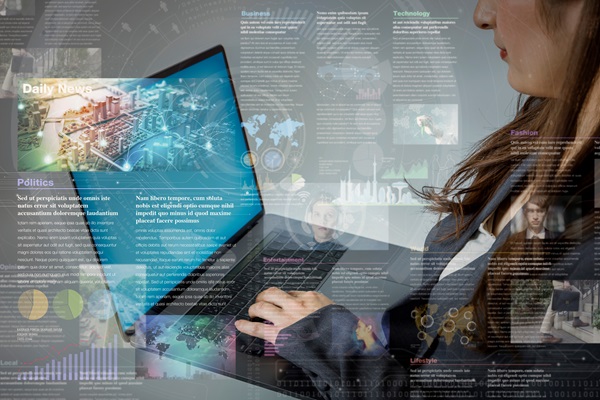The importance of media literacy in democracy’s big year

A central concern ahead of the elections is ensuring freedom and fairness in the information ecosystem. This means keeping it free from the negative influences of misinformation and disinformation, and raising awareness of potentially defamatory campaigns to target specific groups, attack political figures or disrupt the democratic process.
Misinformation, disinformation and democratic participation
Misinformation (when facts are not understood, or not comprehended in context) and disinformation (a deliberate attempt to skew the truth for an ulterior motive) are threats to the stability of contemporary democracies. It is particularly important that children and young people, who are more influenceable, learn skills to help them recognise truth and fiction, and make informed decisions.
Media Literacy: the ability to access the media, to understand and critically evaluate different aspects of the media and media contexts and to create communications in a variety of contexts. (European Commission, 2021)
Low levels of media literacy act as a barrier to democratic inclusion. Citizens’ exposure to large-scale disinformation, including misleading or false information, is a major challenge for European democracy.
One example of this is the COVID-19 crisis. The virus outbreak dominated the media, accompanied by an ‘infodemic’: a massive amount of information that made it difficult for many people to find trustworthy sources and reliable guidance for making informed decisions. Therefore, all citizens need to have a critical understanding of and interaction with the media and digital environments.
The European Digital Media Observatory (EDMO) provides expertise, ideas and networking opportunities to empower media literacy practitioners and others in the fight against disinformation. The Observatory produces country profiles for each Member State that offer an overview of national policies and frameworks, information about key stakeholders, and present the status of media literacy in the national curriculum and outside formal education.
Resources, conferences and webinars
The European School Education Platform has a host of resources available on media literacy and disinformation in the school environment.
The eTwinning annual theme 2021 – Media literacy and disinformation – created many useful resources:
- the eTwinning Annual Conference, with a keynote by Zeynep Tufekci,
- the eTwinning Book including examples of projects, resources and activities,
- the dedicated eTwinning group has acted as a space to share practice examples, discuss teaching and learning methodologies, and find support for professional development.
The European School Education Platform also contains many other articles and resources related to media literacy.
Several EU-funded projects have created practical resources for teachers. For example, The iMES project has developed a curriculum for teaching ‘Media and Society’ in secondary and vocational schools. The materials include theoretical insights and detailed lesson plans available in English, Greek, Croatian and Lithuanian. The Facts4All project has developed the ‘Only facts’ challenge including a 10-step info sheet to tackle disinformation.
The European Commission’s guidelines on tackling disinformation and promoting digital literacy provide hands-on guidance for teachers and educators, promote responsible and safe use of digital technologies, and foster public awareness of and knowledge about disinformation. These provide pedagogical expertise on strengthening the critical thinking skills of young people to foster their resilience in the digital world and are intended for primary and secondary school educators at all stages of professional development.
The pandemic demonstrated just how fast misleading or false information can spread online. With the Spot and fight disinformation toolkit, secondary school teachers can help their students separate what is real from what is fake when they are browsing online. The toolkit is comprised of an editable presentation (which includes real life examples and group exercises) and an instruction booklet for teachers.
The Commission has also published Better Internet for Kids (BIK+), a strategy to ensure that children are protected and empowered online. It provides information, guidance and resources for age-appropriate digital services to enable teachers and education professionals to equip children and young people with the digital and media literacy skills they need to use the digital environment in a responsible, respectful, critical and creative way. It also includes a child-friendly leaflet that explains the ideas in a way that even relatively young children can understand.
For professional development, see our short online course ‘Digital citizenship education and democratic participation’.
Further reading
Additional information
-
Education type:School EducationVocational Education and Training
-
Target audience:TeacherStudent TeacherHead Teacher / PrincipalPedagogical AdviserTeacher EducatorGovernment / policy makerHigher education institution staff
-
Target audience ISCED:Primary education (ISCED 1)Lower secondary education (ISCED 2)Upper secondary education (ISCED 3)
